|
Thursday, April 16
Our Half the Sky delegation was invited by LuXun Academy President Wei Er Shen to join its Vice President, Gallery Director Wang Yi Gang and some of the International Office staff in a formal dining room for a Welcome Dinner. President Wei joked that he was welcoming us at the end of our time together as a cultural exchange, but that it was also appropriate to have this time together after the opening and our events in order to celebrate their successes. Michael, our interpreter from the opening and our roundtable session sat next to President Wei and shared with us the President's official welcome speech. In the toast and speech, he told of of some of the history about LuXun Academy, which was founded in 1938:
President Wei also spoke about the unprecedented nature of Half the Sky: Intersections in Social Practice Art. There have been women's art exhibitions in China before, but not with the intentions associated with this one, where the focus was on collaboration, interactions, sharing of women's lives as artists and concerned citizens. On more personal notes, he talked about his enjoyment of western music, particularly that of Karen Carpenter, and US cities such as New York City. As was customary and expected, I also made a toast in gratitude to President Wei Er Shen for inviting the Women's Caucus for Art to Shenyang, to Gallery Director Wang Yi Gang for letting us use the beautiful gallery, for the generous and kind staff and academicians who assisted us shared this rich and meaningful experience with us. I complimented the Academy's peaceful and inspiring setting and the enthusiasm of its students. The huge round table meant that the official conversation between President Wei Er Shen, Priscilla Otani, Jing Deng and myself was difficult to hear by others, but we all shared the delicious local foods that were presented on the large glass turntable - each of us nabbing bits each as they rotated by. President Wei announced the official end of the dinner when he noticed that our eating was slowing down. He and the Academy staff departed after much gratitude among us all. Our delegation stayed around the table to have a warm satisfying debrief of our experiences so far. Sherri Cornett
0 Comments
Thursday, April 16
This day we were to offer our Cultural and Community Interaction Events. At breakfast, and considering the responses and comments of the Chinese artists in the roundtable discussion the day before, we had a thoughtful revisiting of our intentions and presentational formats for these events. There was again concern about how much to push uncomfortable topics such as gender and domestic violence and rape, but agreement that this was social practice art We decided to present these events as examples of art activism and audience engagement and lowered our expectations for audience participation. We were pleasantly surprised. Over fifty people were waiting for our events to begin. Sandra Mueller and I opened, with Jing Deng assisting as interpreter, with an explanation about our Points of Many Connections Dome. How it was a place for viewers to contemplate the ways they take care of their loved ones, their communities and how they share they responsibility of making the world safe and habitable. We then offered pens and the golden strips of fabric - that women had begun writing on at the WCA Conference in Chicago - and asked if anyone wished to add their name, where they lived, to draw or write how they hold up the sky. We were besieged for requests for the pens and fabric. Wang Yi Gang sat next to me on the floor as we added our thoughts to the fabric. Participants sat in the dome, hung their fabric strips from the weaving inside or added them to the pile on the center of the dome floor. We felt it was an unexpectedly successful setup to the events to follow. Neda Mordipour, of Louder Than Words, eloquently described the purpose of These Wall Can Talk, the domestic scene, with its wallpaper design (a toile version of implements of violence such as fists, knives and belts) and video of men reciting Jackson Katz' 10 Things Men Can Do To Prevent Gender Violence. She then asked participants to to place stickers that said "Don't Remain Silent" (in English and Mandarin) on the wallpaper. Immediately one tall, young man stepped forward from the crowd. The delegates were initially concerned by his body language as it seemed somewhat aggressive, but we were relieved and pleased that he was wanting to know if this installation was only about women, or if men could be victims of gender violence. Neda's response was calm and informative and after a few more questions, audience members did begin to approach the wallpaper and place their stickers, while others photographed this process. The delegates flanked Elana Mann in front of her poster installation about Myths of Rape for her People's Microphone call and response presentation. We had anticipated that this would be perhaps the most intense and challenging of our events. The people's microphone is a method for a large audience to hear what a speaker is saying. Those around the speaker collectively repeat the comment. Elana said a myth about rape in English and the delegates repeated it. Jing then said the same myth in Mandarin and, surprising us again, the mixed-gender audience loudly replied. We continued with the corresponding fact to bely the myth and other myth-fact statements and felt the audience and ourselves were highly energized. From this event, we toured the exhibition, giving each Chinese or US-based artist in attendance, an opportunity to briefly describe her work. The crowd followed and listened attentively. Alli Berman's Common Threads: Intersections of Time and Line interactive installation wrapped up our morning. With her characteristic enthusiasm, she explained how women, including herself, are challenged, beat down and then stitched back together with the assistance of the people in their lives. She then asked the audience to color in squares of pre-printed graphics of weaving lines and shapes and then to find some continuation of line in each of their squares to another square in the installation, thereby showing our commonalities and connections. This activity was excitedly embraced - especially by the art students in attendance. From the beginning, this project was more than an art exhibition. The cultural exchange aspect was paramount to our social practice goals. This morning's interactions and responses filled us with gratitude and satisfaction and awe. Sherri Cornett April 15th
The afternoon of the opening ceremony, Gallery Director Wang Yi Gang, with facile interpreter Michael good-naturedly working through the difficult concepts, set up a conversation for our US-based delegates and Chinese artists and professors. We wondered where, if the two men had not been present and if we had had more than the 2+ hours allotted, the conversation would have lead. Still, Wang Yi Gang came across as an enlightened supporter of the need for women artists to work together, to understand each other and advance their work. At first, the focus seemed to be on the differences in our cultures. The Chinese artists seemed a bit baffled by the number of our works that addressed inequality and violence against women. As with Mao's quote that formed the basis of this project, women in China are expected to contribute equally and, at times, the Chinese artists spoke as if their lives as artists were more equal to Chinese men than the situation in the US. With further questioning, they spoke of the extreme challenge of trying to balance work and motherhood and that the work of women artists in China is seldom documented. When pressed, they could only name one Chinese woman artist who had received historical acclaim. Our activist work seemed to make them somewhat uncomfortable, but, again, we wondered if, in private, we would have a more open exchange about this. We were asked about the diversity in our delegation - the number of young and older members from different ethnicities and backgrounds and there seemed much interest in the purpose of our organization. There did not seem to be any collectives or women-only organizations to support artists in China. As the conversation neared to its scheduled conclusion, the conversation warmed to less formal questioning and answering and we were left with the impression that doors had opened for all of us for deeper understanding of each other and a strong curiosity about learning more. Sherri Cornett The opening ceremony was scheduled for mid-morning, but when we arrived at the gallery early to re-check the installation and set up the documentation equipment, many visitors were already carefully and intently viewing the exhibition and discussing it with those around them. Through delegate Mido Lee, who seemed to be everywhere interpreting, problem solving tech issues and filming, I asked Wang Yi Gang, the Gallery Director and Chinese Curator for Half the Sky, if our works appeared to be edgy or uncomfortable for the Chinese viewers. He replied that they were somewhat challenging, but that art that focuses on such difficult issues as domestic violence and rape, opens the eyes of viewers and that is important.
Gallery staff told us they had never seen so many people show up for an opening and our Beijing-based delegate Katie Morton, said that crowds are typically small even at openings for internationally known artists and exhibits in Beijing. Priscilla Otani and I were asked to stand with the President of LuXun Academy and other dignitaries as Wang Yi Gang spoke first - elaborating on the unprecedented nature of this exhibition of US-based and Chinese women artists and the unique opportunities for these women to share their views of the world. I spoke about the impetus of this project - to build community and find common ground through art, in ways that crossed cultural and language barriers. I said that this project was so much more than the 13 delegates who were together in Shenyang and thanked: -Wei Er Shen, president of the Academy, for our initial official invitation to create the project -Wang Yi Gang for the use of the beautiful gallery and for selecting the Chinese artists -our Co-director Jing Deng -her friend and the Chinese Co-Curator Zhao Yin Ou, who, together, came up with the initial idea to provide an opportunity for WCA and Chinese artists to exhibit in China -Yin Ou's mother, who works in the Academy photography department and helped us build the groundwork -Xiao Ke, a gallery staff member, who ran down answers for our many questions -our delegate leaders, Rosemary, Christine and Sandra -our artists, essayists and jurors -and the many volunteers who supported us back in the States Priscilla talked about the history of WCA and its roots in activism and the UN. There was much applause and excited interaction with artists and participants when the official opening ended. After so many months of work and unknowns, our delegation was beginning to feel great satisfaction. Sherri Cornett The entire delegation dined together for the first time on installation night, April 14th, in our private dining room in the International dormitories at LuXun Academy. Food was provided by the master chef, who would delight us with expertly prepared regional foods during our entire stay, and Elana and Alli, who brought items to share with us as they lead a modifies Seder dinner in celebration of Passover. The Jewish holiday's themes of liberation and freedom reflected many of the artworks of both the Chinese and US based artists in our exhibition and were meaningful to our multi-cultural delegation, each of whom shared something of their personal history related to these themes. This relaxed time together after the intensity of the installation work provided another level of connecting.
HTS delegates began arriving in Shenyang on April 11th, staying at hotels in the area before beginning to round up the last installation items on the 12th and moving into the dorms at LuXun Academy. They were greeted by friendly and helpful gallery and administrative staff. Rosemary Meza-DesPlas, our Installation Director, lead her team in unpacking shipped works on the 13th and created a detailed and thoughtful plan that was accepted almost in total by the gallery director Wang Yi Gang. On the morning of the 14th, gallery staff were still de-installing the previous exhibit, which meant a very long day for our installation crew, who were joined by the remaining delegates. As pieces started populating the walls and floors, Wang Yi Gang and many of the gallery staff members began smiling and sharing with us their excitement about how all of the works - the Chinese and those from the US - were creating an impressive exhibition. It was exhausting work in the reduced number of hours we had to install, but with much cooperation, we completed it by dinner. Three of our delegates were unable to travel with us - Jill Waterhouse, S A Bachman, and Audrey Chan - hdue to family and personal health issues. Audrey had planned on helping us blog. Blogging became difficult due to very challenging internet connections. Even with. VPNs, the intermittent and overused servers prevented reliable access. Our documentation crew continued to focus on photographing and video. Sherri Cornett Director, Half the Sky: Intersections in Social Practice Art
After more than a year of planning, our delegates start arriving at LuXun Academy in Shenyang in just 5 days! Over 40 women and a handful of men have worked together to make this happen: artists, essayists, delegates, steering committee members, jurors, LuXun Academy staff, and other WCA volunteers. We are continually grateful to those who donated to our Indiegogo campaign. We truly could not have done this without their generosity. We head to China with much gratitude and hope and are excitedly anticipating being all together for the first time as a delegation and making connections with the artists there.
Please check out our new web page about the Cultural and Community Interactions activities we will be offering there. We will be videotaping, photographing and writing in order to create an in depth documentation of this unique event when we get back to the States. In the meantime, we will share bits of our experiences of you here on this blog. Gratefully, Sherri Cornett Director, Half the Sky: Intersections in Social Practice Art |
This blog documents Half the Sky: Intersections in Social Practice Art, a cultural exchange and exhibition created by the International Caucus of the Women’s Caucus for Art and in partnership with and at the LuXun Academy of Fine Arts, located in Shenyang, Liaoning Province, China from April 15-30, 2014.
Authors
Delegates of Half the Sky: Intersections in Social Practice Art will post and comment on this blog. ArchivesCategories |

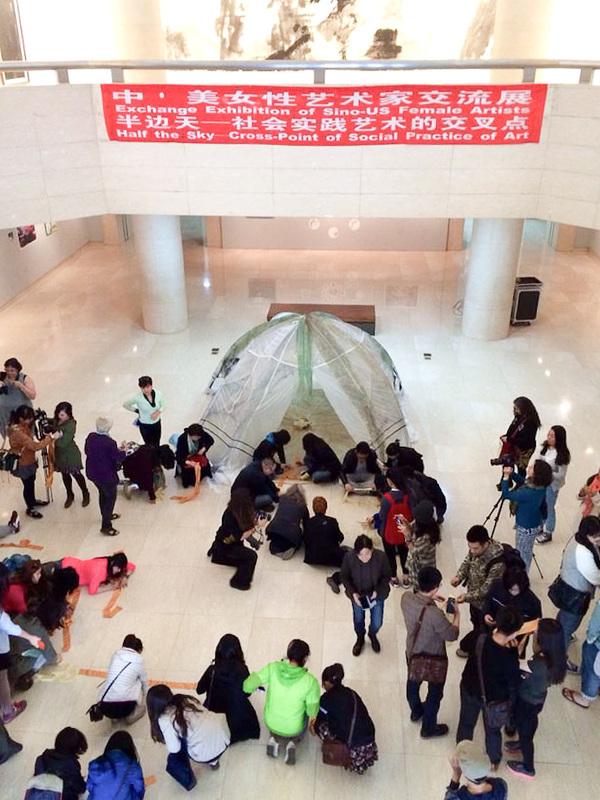
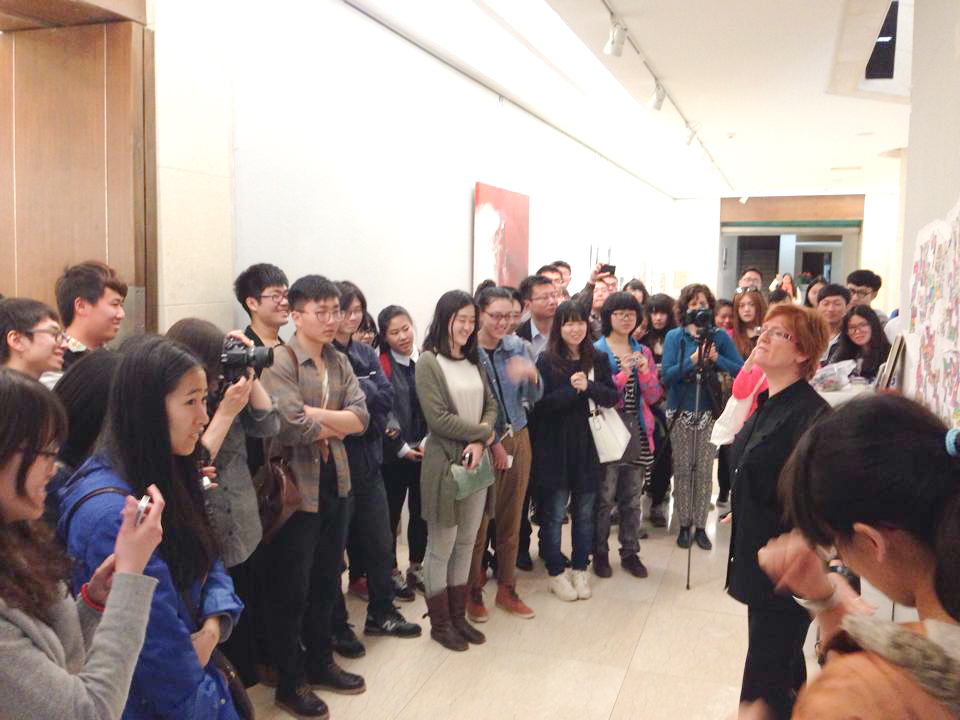
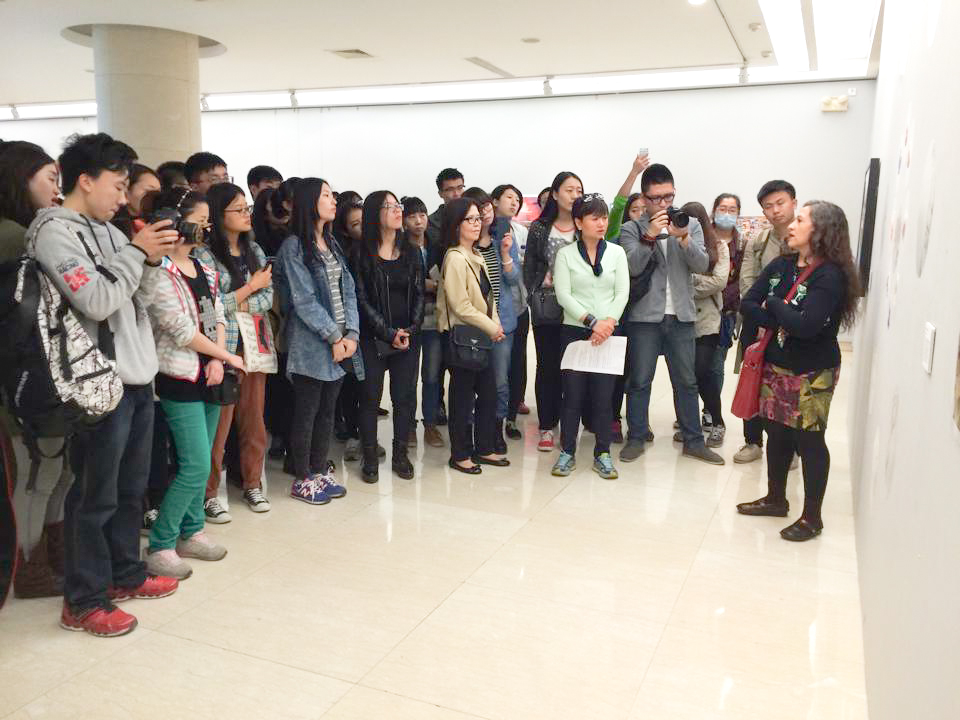
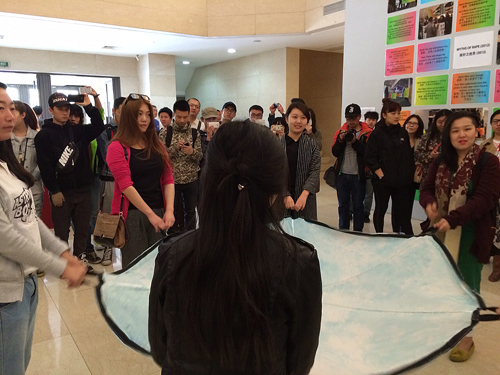
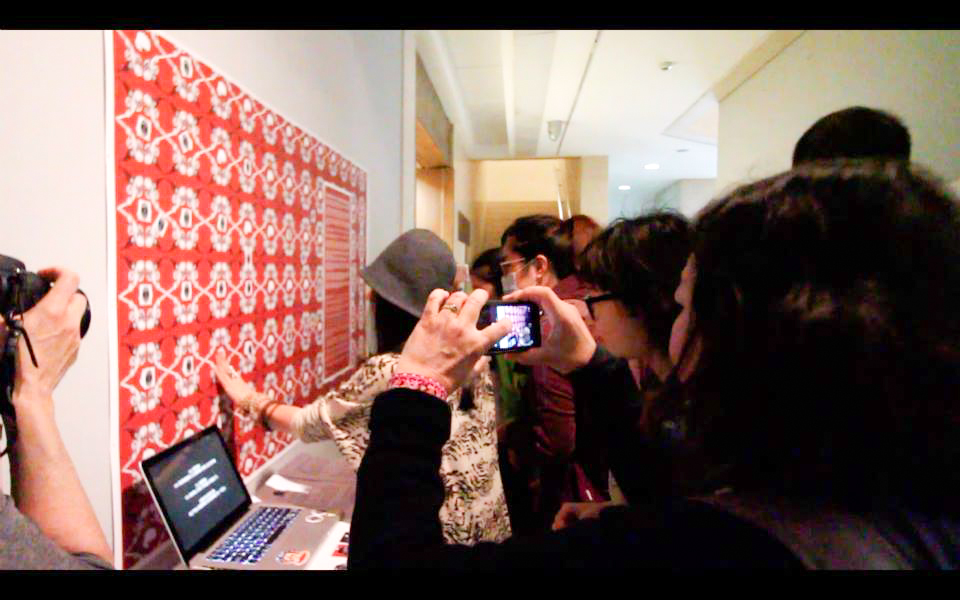
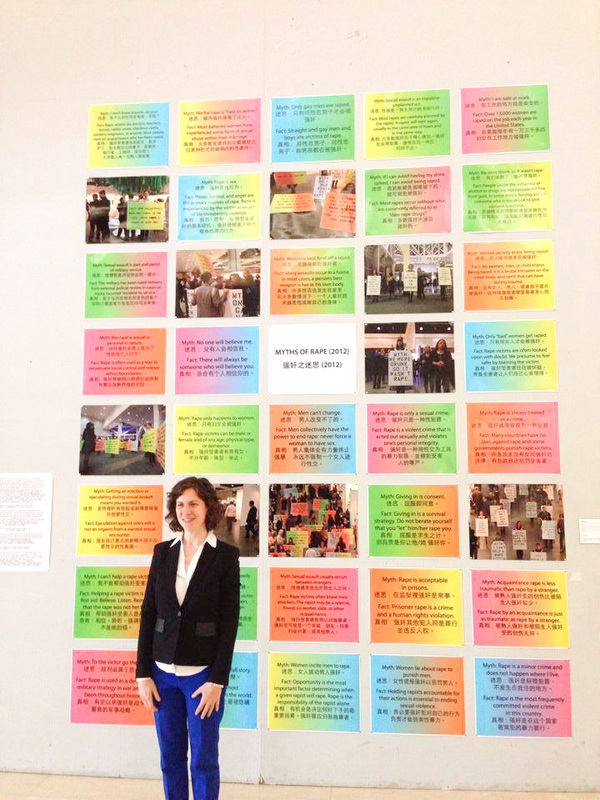
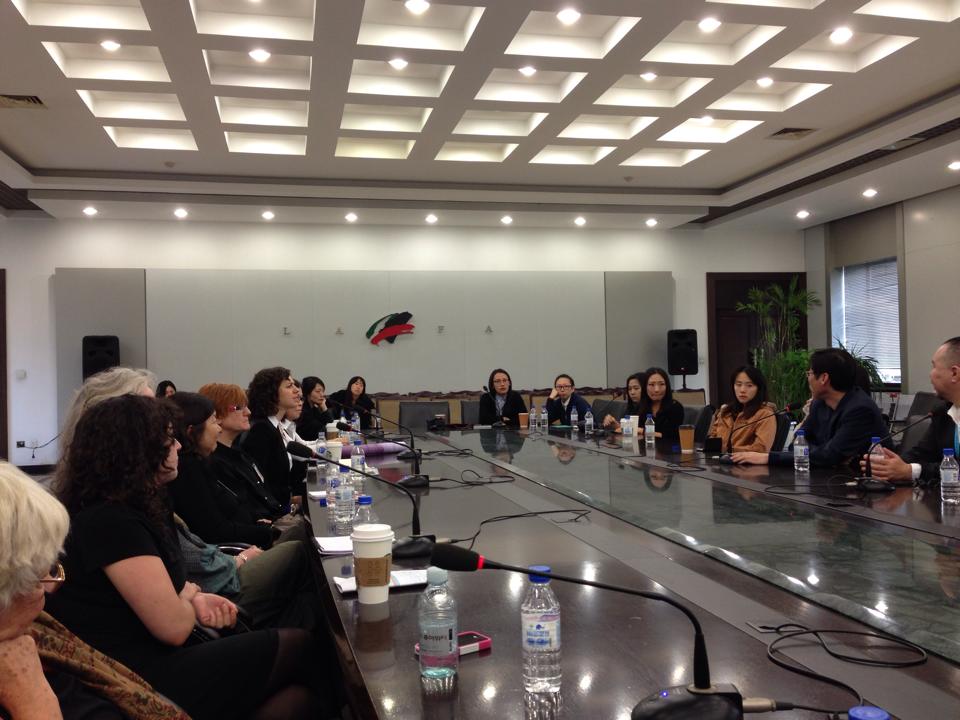
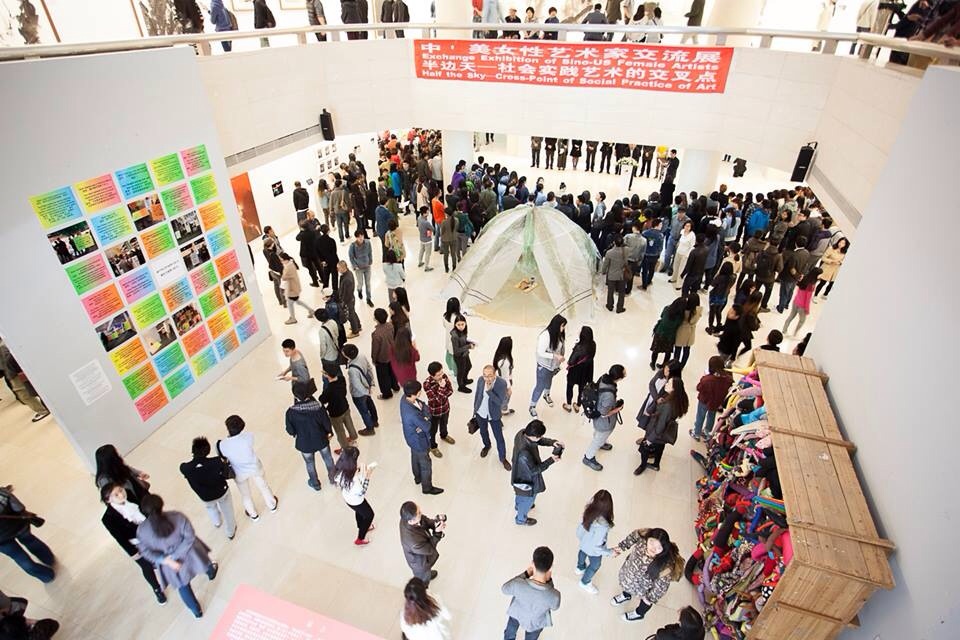
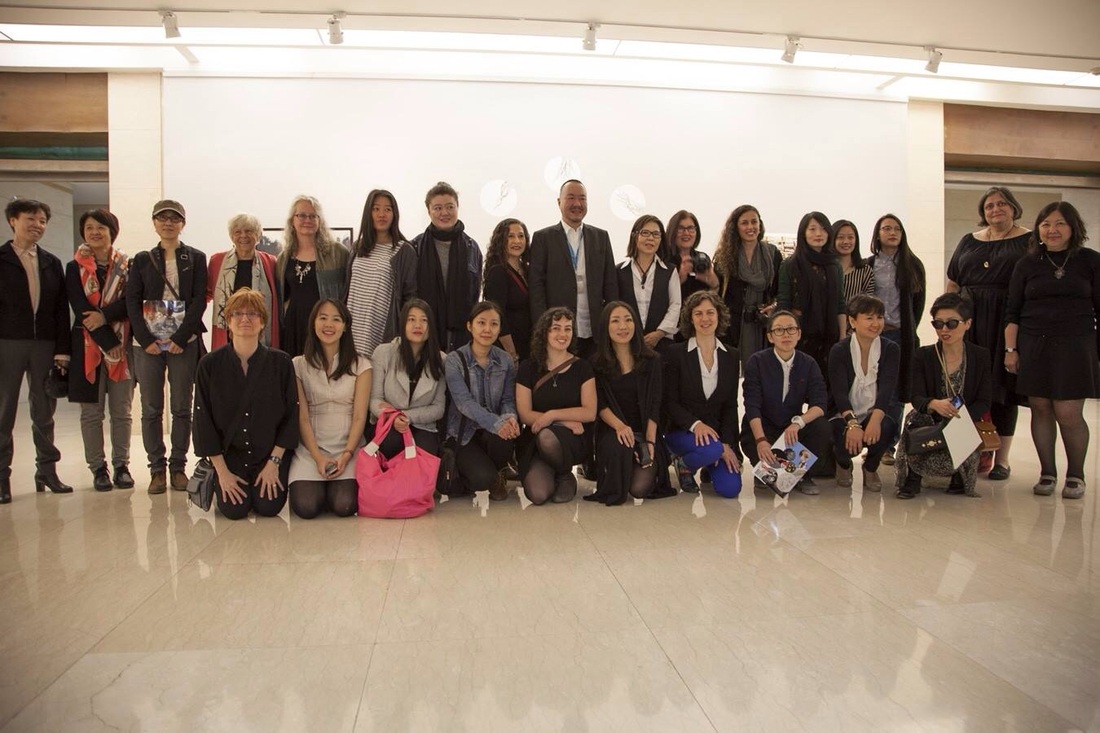
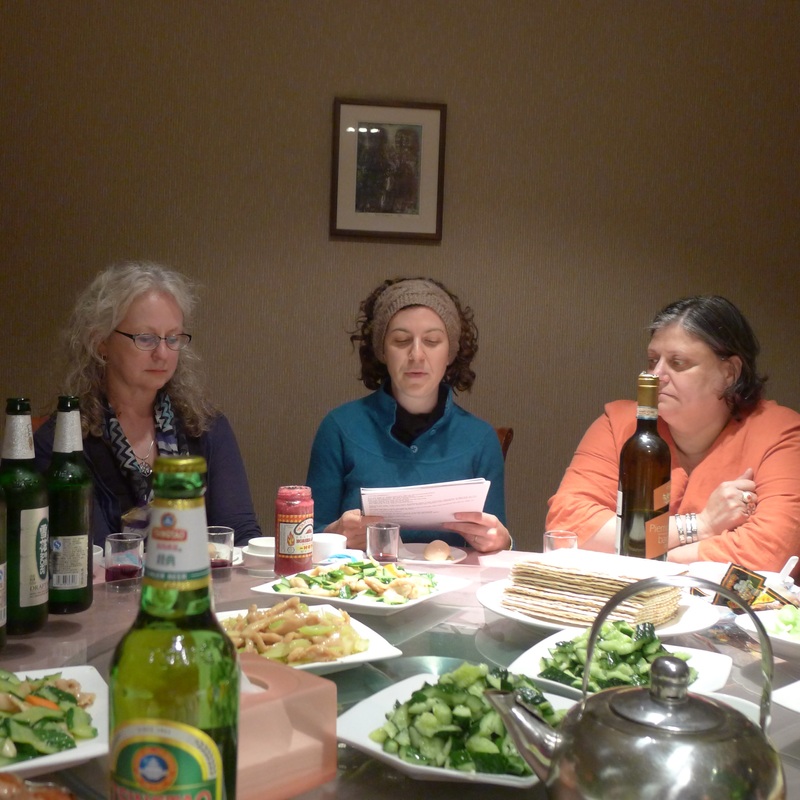
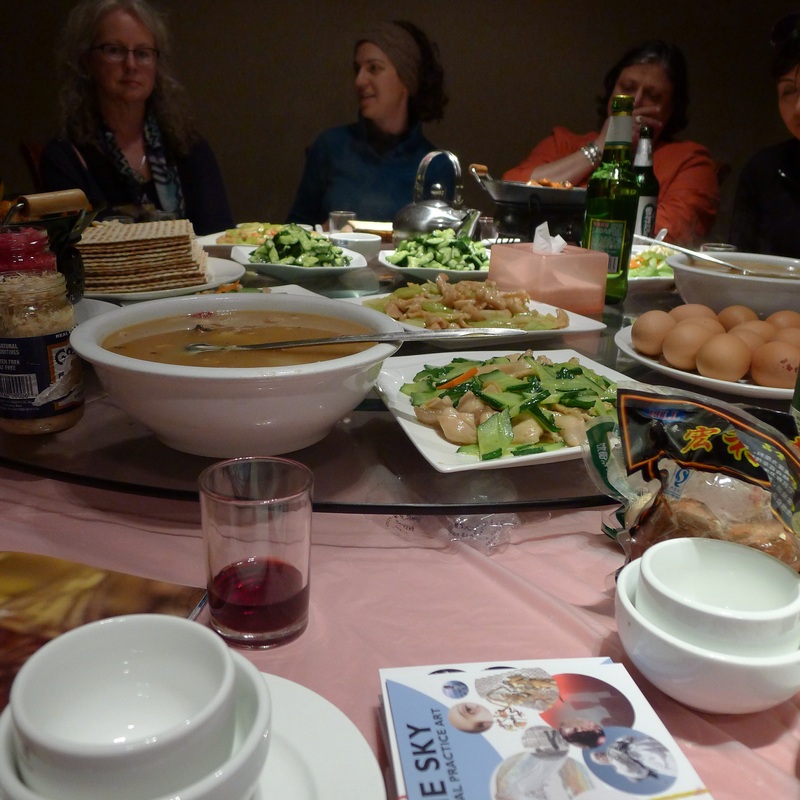
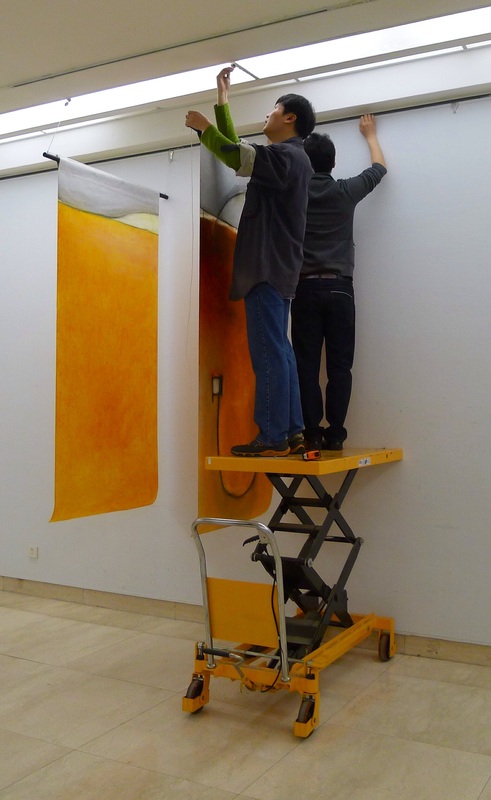
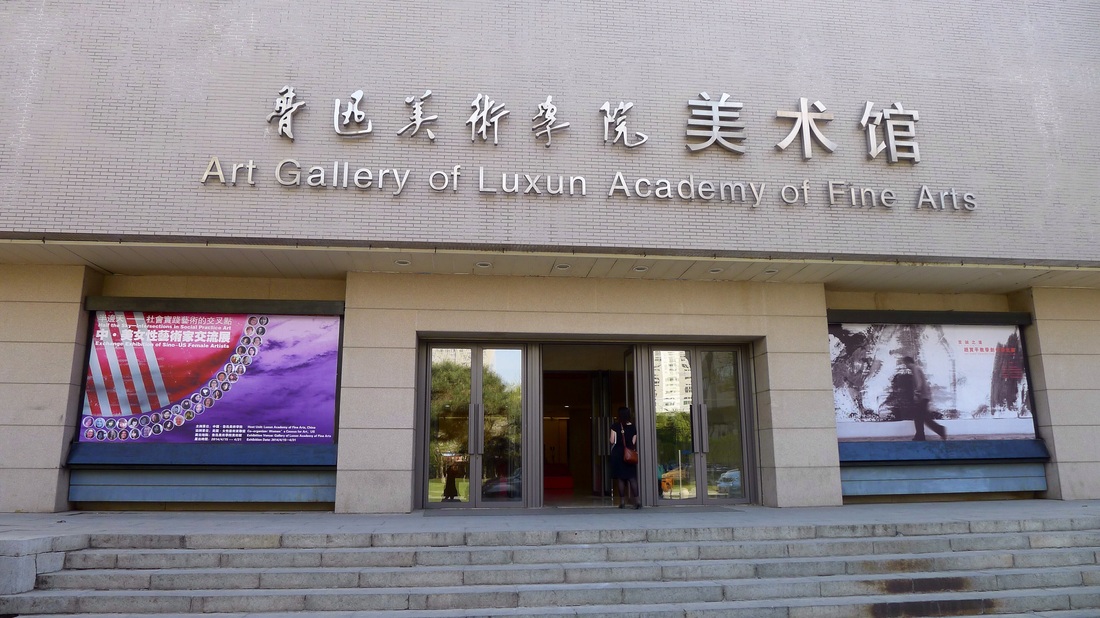
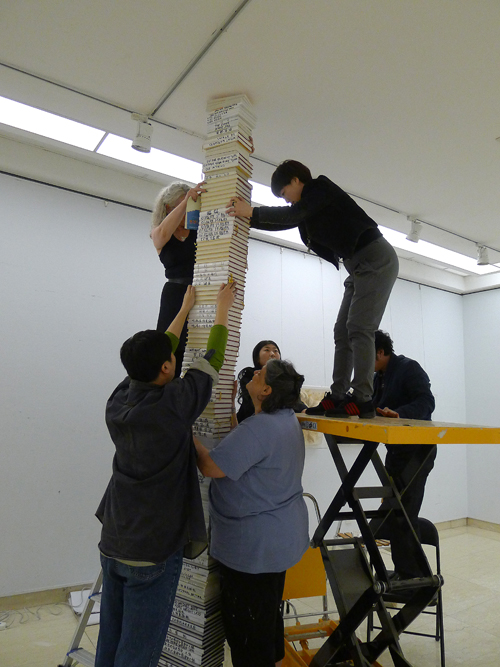
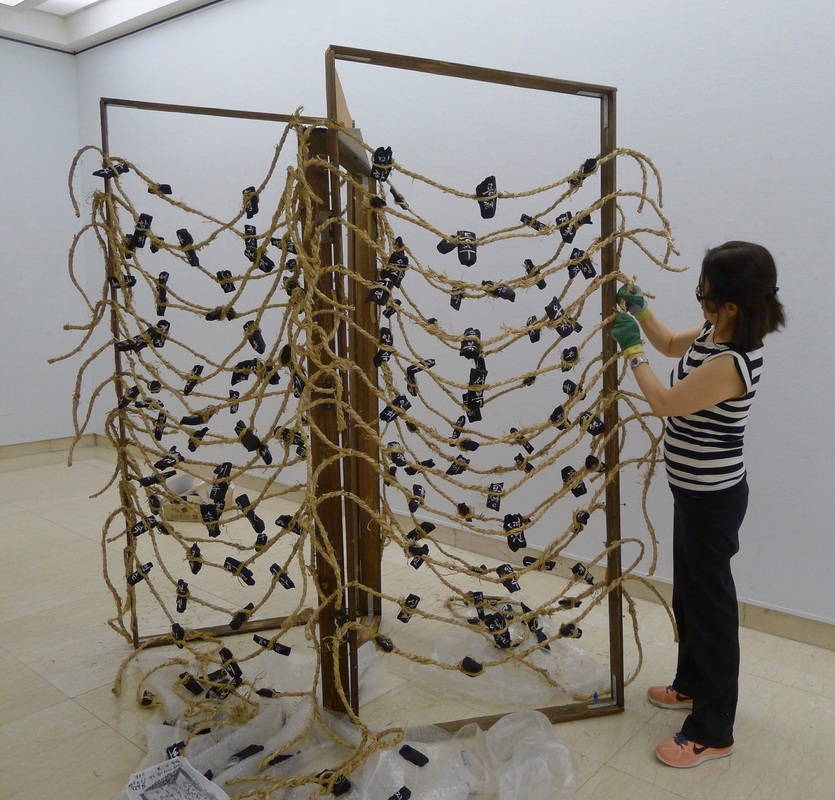
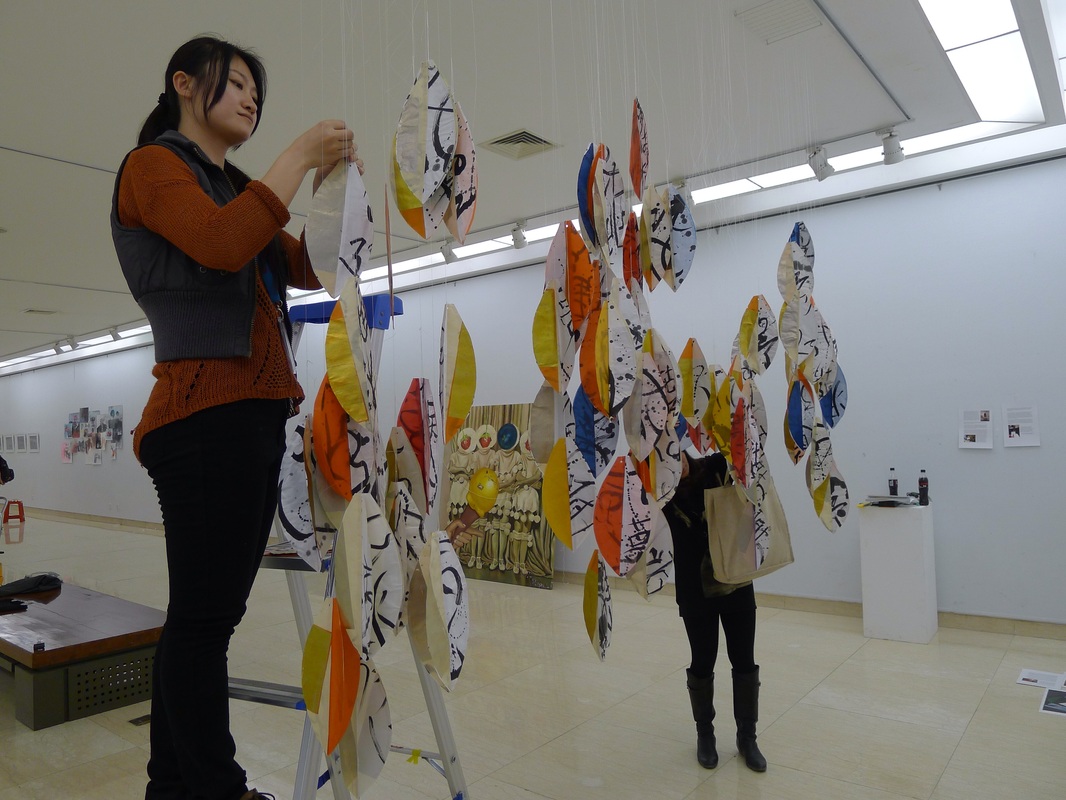
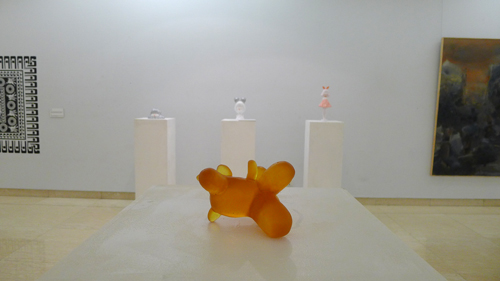
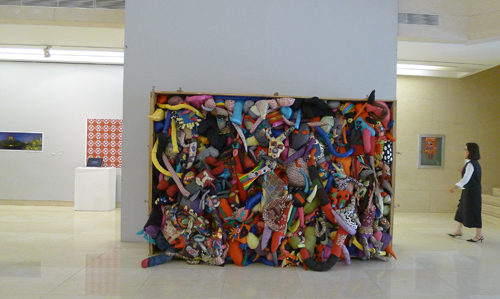
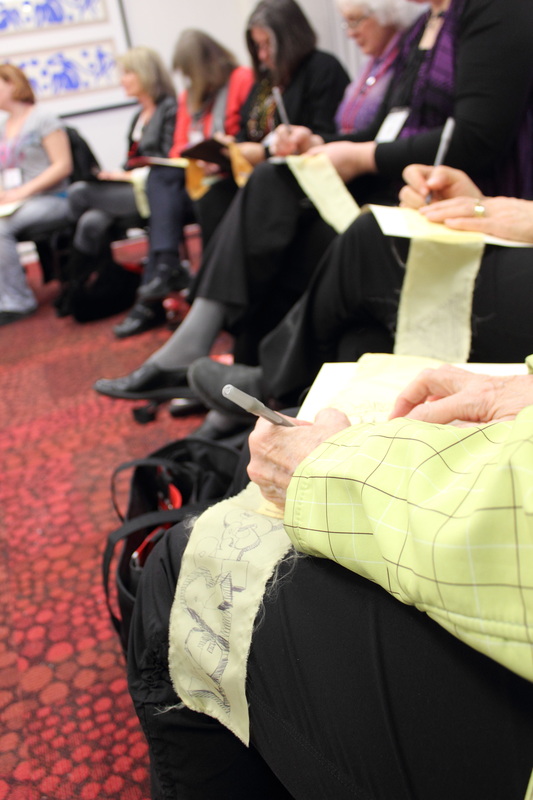
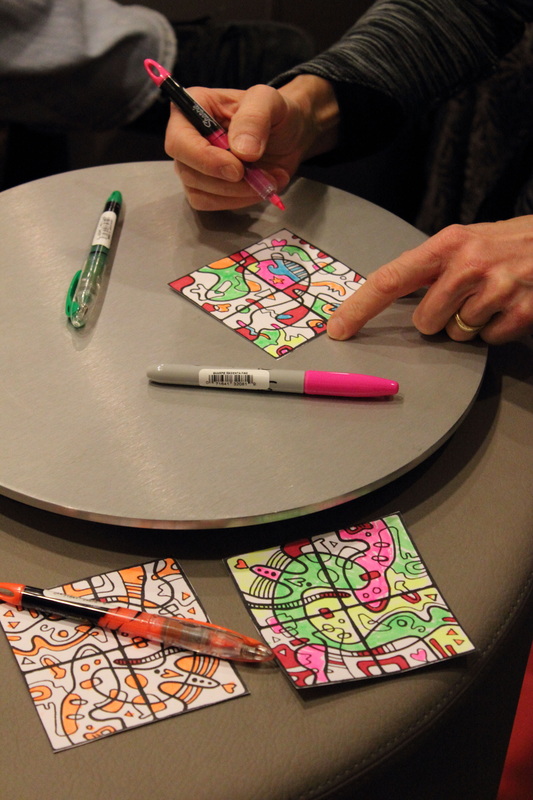

 RSS Feed
RSS Feed